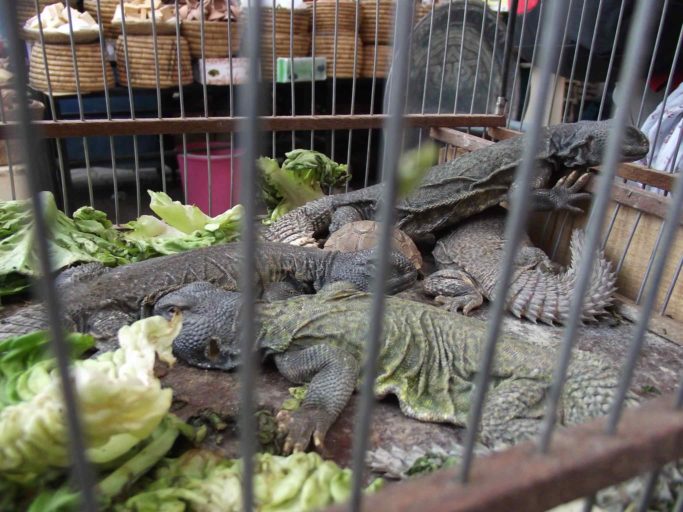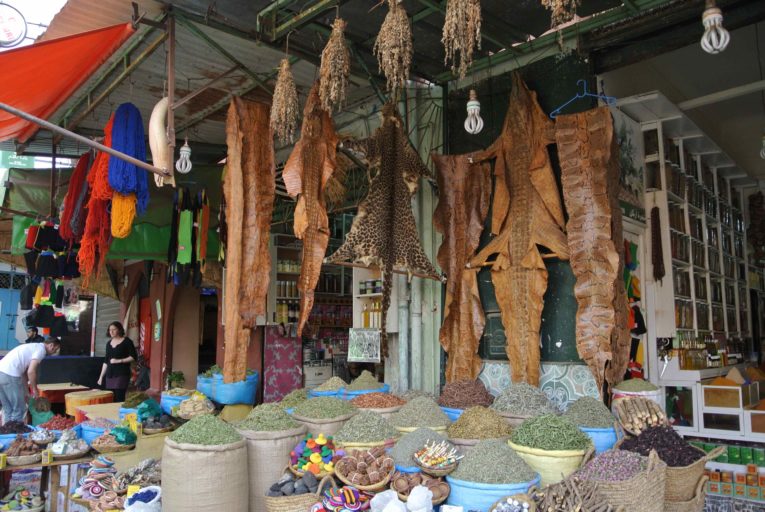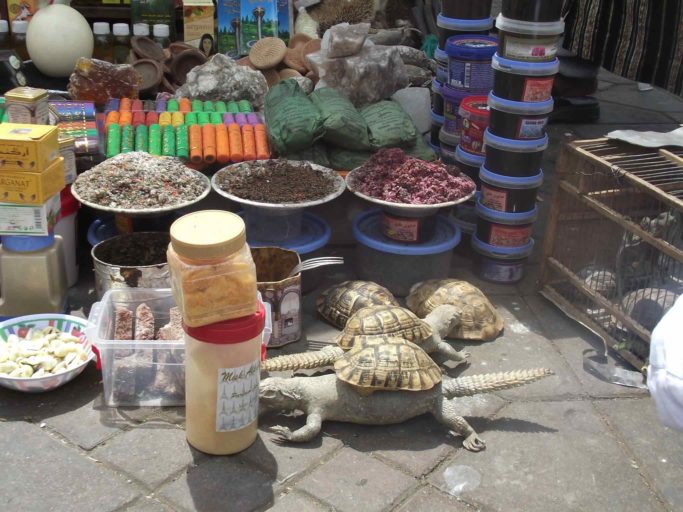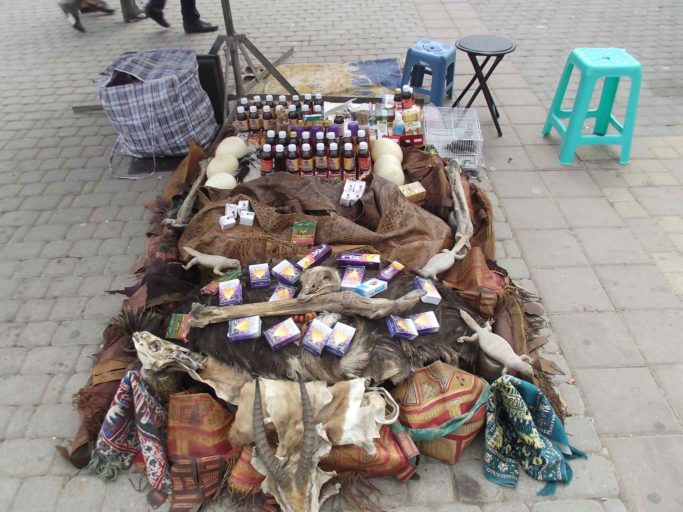- Several species of lizards, snakes, tortoise and crocodiles are being traded openly in Moroccan markets for use in traditional medicine.
- Much of the trade is illegal, researchers say.
- Since this trade is largely unregulated, scientists are yet to understand the effects of the trade on the species’ populations.
On the streets of Morocco, several species of lizards, tortoise and snakes are being sold openly for use in traditional medicine, a new study has found. Many of these species are threatened with extinction.
Over the course of four surveys in 2013 and 2014, researchers recorded more than 1,500 specimens of at least nine reptile species for sale in 14 markets in Moroccan towns, including the Mediterranean chameleon, Bell’s Dabb lizard, and the spur-thighed tortoise. Sold live, dried, or stuffed, these animals had a combined value of about $100,000, scientists report in a new study published in the journal Contributions to Zoology.
“What we found most surprising was the openness of the illegal trade,” said Vincent Nijman, a professor of Anthropology at Oxford Brookes University. “These animals were not being sold in shady black markets, but were found right in the main squares, openly displayed in full view of anyone walking by. We have seen this in many markets in tropical Asia and Africa, but to see this on Europe’s doorstep was not what we expected. Also the variety of animals that were on sale was higher than we expected.”

Animals on sale included not only common species native to Morocco such as the Mediterranean chameleon (Chamaeleo chamaeleon), but also rare ones like the spur thighed tortoise (Testudo graeca), currently listed as vulnerable on the IUCN Red List.
Some of the species being traded are not even found within the country, the researchers found. For example, the team identified skins of more than 200 African rock python and more than 50 specimens of Nile crocodile (skins or stuffed) that may have been illicitly imported from other parts of Africa.
In fact, much of the trade in reptiles in Morocco is illegal and unregulated, researchers say. Most species — the spur-thighed tortoise, Mediterranean chameleon, Bell’s Dabb lizard, desert monitor lizard, African rock python and Nile crocodile — are protected under CITES (Convention on International Trade in Endangered Species), to which Morocco has been a party since 1975. Some species are also locally protected. However, thousands of these reptiles continue to be sold illegally to cure ailments like insomnia, bad eyesight, and as good luck charms, despite no scientific evidence backing these claims, the researchers say.
Morocco has one of the highest diversity of reptiles in the Mediterranean countries, with about 25 species occurring only within the country. But the impacts of the illegal trade on the species’ wild populations is yet to be determined, scientists say.
“As far as we are aware no one is monitoring populations that are harvested — not for common species and not for the rare ones. Unless the trade can be proven to be sustainable, Moroccan law dictates that collection should not occur,” study lead author, Daniel Bergin of Oxford Brookes University, said. “A species such as the Mediterranean chameleon may be able to handle the effects of collection but for species considered Vulnerable such as the spur-thighed tortoise, the impact on wild populations may be more severe.”

Unfortunately, law enforcement remains poor.
“When speaking to Moroccan authorities, they made clear their desire to enforce the new wildlife conservation laws but feared for lack of resources. We hope that our work can help them identify areas of importance so they can efficiently target unscrupulous vendors,” Bergin said. “Morocco has in place laws that provide them with an opportunity to curb the unregulated trade of wildlife within the country. We believe that our research can help guide the efforts of government officials by identifying problem areas and species, thereby assisting them in protecting Morocco’s biodiversity.”


Citation:
- Nijman V and Bergin D (2017) Reptiles traded in markets for medicinal purposes in contemporary Morocco. Contributions to Zoology, 86 (1).